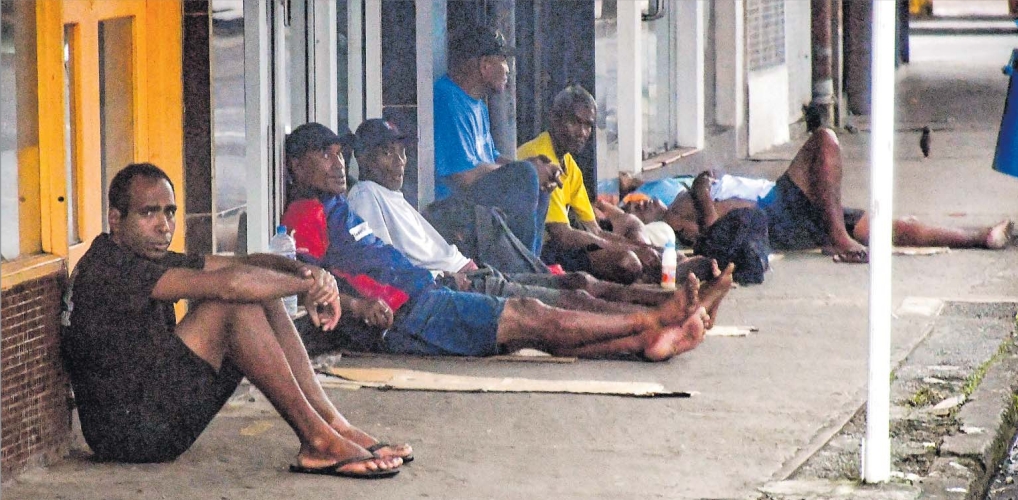The news this past week from Port Moresby should echo across Fiji not as a model to emulate, but as a cautionary tale. Papua New Guinea’s approval of a new defence treaty with Australia, is the latest move in the Pasifika’s Great Game, a strategic gambit where larger powers vie for influence, using smaller nations as pieces on their geopolitical board. For Fiji, a nation that has painstakingly carved out a role as a regional leader and a master of “multi-alignment,” this path is a dangerous anachronism. To tie our security — and thus, our sovereignty — to any single power would be to betray our hard-won independence and our unique potential as a unifier in a divided region. The seductive allure of a security guarantee is understandable. It promises protection, resources, and a place at the table of a powerful friend. But this is a fool’s bargain. As we have learned through our own history and our deft navigation of international relations, security is not a gift to be received; it is a condition to be built. And true, lasting security cannot be imported from Canberra, Washington, or Beijing. It is homegrown, cultivated in the fertile soil of economic resilience, social cohesion, and climate stability.
The deft art of multi-alignment vs. the blunt tool of alliance
FIJI’S strategic genuinity: engaging with all, but beholden to none. We work with China on infrastructure, with Australia and Aotearoa on policing and military training, and with a multitude of partners on development. This is not indecision; it is supreme strategic agency. It allows us to extract benefits while retaining the ultimate power — the power to say “no,” to set our own terms, and to pivot based on our national interest, not the interests of a patron.
An exclusive security treaty shatters this delicate balance. It effectively makes us a client state, aligning our national destiny with the strategic objectives of another. When that power enters a conflict or a period of heightened tension — as is inevitable in today’s world — we are no longer a neutral voice for peace. We become a forward base, a target, or at best, a compliant ally expected to fall in line. We trade our role as a sovereign player for that of a supporting actor in someone else’s drama.
Our real battlefield is not the sea, but the soil
The greatest threats to our security do not sail warships or fly fighter jets. They rise with the seas, blow in with intensifying cyclones, and fester in the persistent inequalities of our communities. Our national security is inextricably linked to human security.
Poverty is a national security issue. A population struggling to meet basic needs is vulnerable to exploitation, political instability, and crime.
Climate change is the single greatest existential threat. It erodes our coastlines, destroys our crops, salinates our water, and displaces our people. No defence pact with a foreign military can fortify a village against a king tide.
Economic vulnerability makes us susceptible to debt-traps and predatory investment, which can be just as corrosive to our sovereignty as any military threat.
These are the battles that demand our full attention and resources. A defence treaty would inevitably skew our priorities, diverting political focus, financial capital, and institutional energy towards military posturing and away from the foundational work of poverty alleviation, climate adaptation, and sustainable development.
A call for principled, inclusive partnership
This is not a call for isolationism. It is a call for a more profound and principled form of engagement. Fiji’s foreign policy should be a magnet, drawing the world to our shared challenges, not a chain tethering us to one power’s agenda.
We must lead the charge in reframing the conversation. Let us invite Australia, Aotearoa, the US, China, India, and the EU to a different kind of partnership — not a “security alliance” against a common enemy, but a “prosperity and resilience coalition” for a common future. Let the agenda be:
1. Co-investment in climate-resilient infrastructure;
2. Collaborative projects for poverty alleviation and sustainable agriculture; and
3. Strengthening regional institutions like the Pasifika Islands Forum to be the primary arbiters of Pasifika security.
In this vision, Fiji is not a prize to be won in a geopolitical contest, but the architect of a new Pasifika century. We become the hub that connects disparate powers around a common, constructive purpose.
The world is dividing into new blocs, and the pressure to choose a side will only intensify.
Fiji’s greatest strength lies in its refusal to be rushed. Our security does not lie in hitching our drua to a foreign warship, but in ensuring our own vessel is seaworthy, our navigators and crew skilled, and our course set firmly towards the horizon of our own choosing — a future where everyone is lifted together, not where anyone is tied down alone.
RO NAULU MATAITINI is a member of the Bose Levu Vakaturaga. The views expressed herein are his and not of this newspaper.



